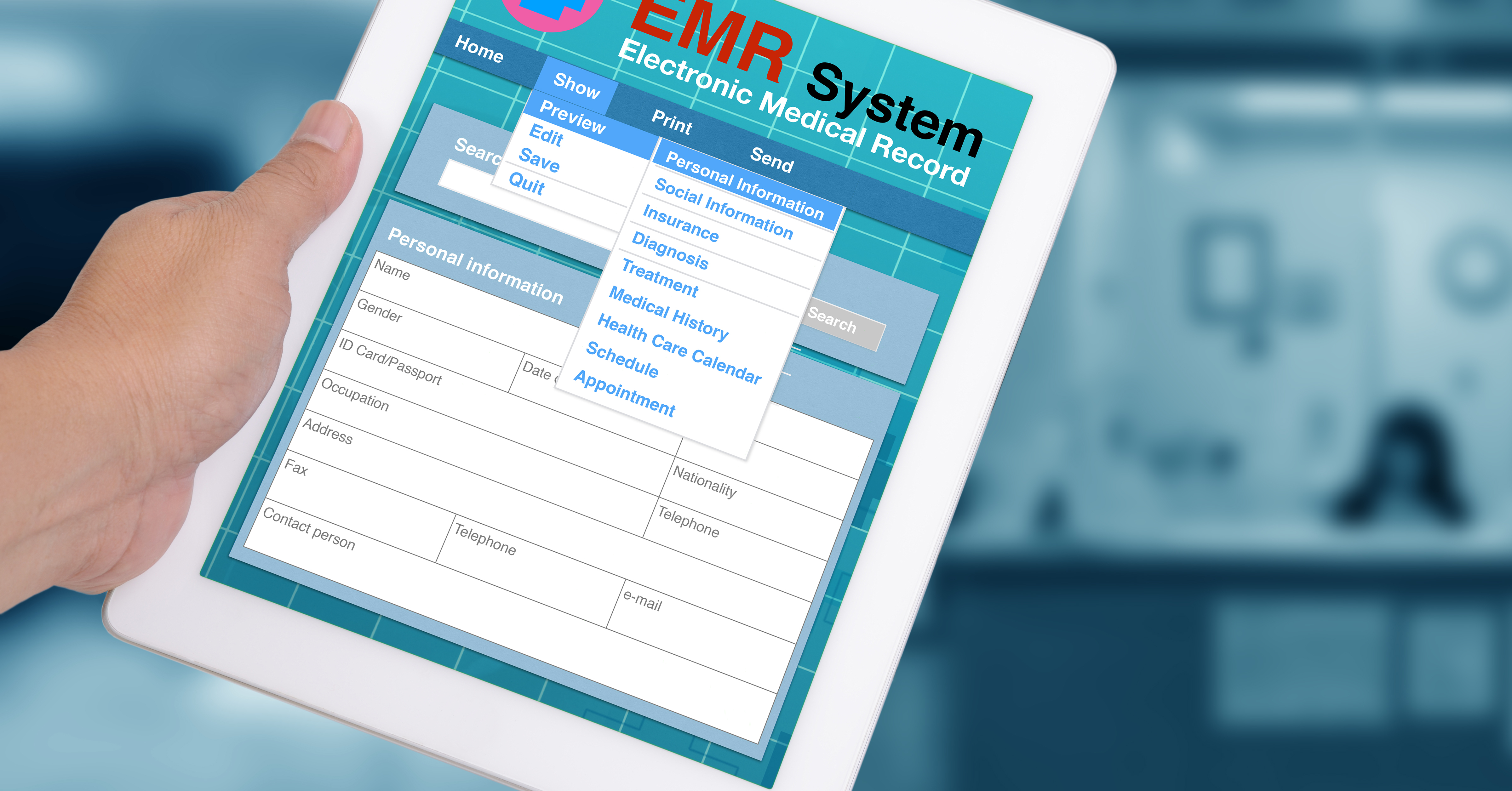Treating minors presents distinct medico-legal challenges. Improper consent or inadequate documentation can result in allegations of battery, negligence, regulatory scrutiny, or professional discipline. Risk reduction requires a clear understanding of who may consent, when exceptions apply, and what should be documented.
Treating Minors: Consent, Guardianship, and Documentation
Mar 1, 2026 7:00:00 AM / by PICA Risk Management Specialist posted in Risk Management
Communication Tips for Deaf and Hard of Hearing Patients
Mar 1, 2026 7:00:00 AM / by PICA Risk Management Specialist posted in Risk Management, Compliance
Clear communication is a clinical safety issue. For deaf and hard of hearing (DHH) patients, misunderstandings can lead to inaccurate histories, consent problems, poor adherence, and avoidable dissatisfaction.
Legally & Ethically Terminating the Doctor-Patient Relationship
Feb 3, 2026 5:56:16 PM / by PICA Risk Management Specialist posted in Risk Management
The doctor-patient relationship is foundational to effective medical care. While physicians are not obligated to maintain every relationship indefinitely, terminating care must be done thoughtfully to avoid ethical breaches, allegations of patient abandonment, or legal exposure. Understanding the proper process for ending a doctor-patient relationship is essential.
Insurance Investigations Triggered by Patient Complaints
Feb 3, 2026 5:35:28 PM / by PICA Risk Management Specialist posted in Compliance, Practice Management
Insurance investigations arising from patient complaints are increasingly common and may be your first indication that the patient had a concern about the care you provided or about your billing practices. These inquiries may originate from commercial insurers, Medicare Advantage plans, Medicaid managed care organizations, or government contractors acting on behalf of Centers for Medicare & Medicaid Services (CMS).
What to Do When a Patient Is Unhappy with Care or Treatment
Jan 9, 2026 11:41:16 AM / by PICA Risk Management Specialist posted in Risk Management
Patient dissatisfaction is more than a customer service issue – it can escalate into complaints, regulatory scrutiny, and even malpractice claims. For podiatric medical physicians and surgeons, addressing concerns promptly and professionally is essential to protect both patient relationships and legal risk.
Regulatory Compliance Updates for 2026
Jan 9, 2026 11:36:12 AM / by PICA Risk Management Specialist posted in Compliance
As we start the new year, it is a great time to review regulatory updates and implement necessary changes to reduce your risk. This article summarizes billing and coding changes as well as HIPAA updates.
Staff Performance Reviews – Are They Necessary?
Nov 26, 2025 11:34:26 AM / by PICA Risk Management Specialist posted in Practice Management
In a busy medical practice, daily demands often take precedence over administrative tasks like performance evaluations. However, conducting annual office staff reviews is one of the most valuable investments a practice can make. Regular, structured evaluations strengthen team performance, support staff development, and ultimately enhance the quality of patient care.
Avoiding Scope-of-Practice Violations
Nov 26, 2025 11:22:20 AM / by PICA Risk Management Specialist posted in Compliance, Practice Management
Scope-of-practice violations are among the most common – and costly – regulatory risks for doctors and medical practices. These occur when:
- A provider performs tasks they are not legally permitted or trained to do.
- Tasks are delegated to staff whose licensure does not authorize those activities.
Treating High-Risk Diabetic Patients While Reducing Risk
Oct 24, 2025 1:23:23 PM / by PICA Risk Management Specialist posted in Risk Management
High-risk diabetic patients are those with a significantly increased likelihood of developing complications such as foot ulcers, infections, or amputations if not closely monitored and managed. These patients may present with:
- Neuropathy
- Peripheral artery disease
- Foot deformities
- History of ulcers or amputation
- Multiple co-morbidities that complicate podiatric treatment
Managing these patients is one of the most liability-sensitive areas of podiatry. It’s essential to provide comprehensive care to improve outcomes and reduce professional liability risk.
Scale Your Practice & Maintain Quality Care
Oct 24, 2025 1:22:53 PM / by PICA Risk Management Specialist posted in Compliance, Practice Management
In today’s rapidly evolving healthcare landscape, many physicians are seeking ways to grow their practices without compromising the quality of care. Scaling a medical practice involves more than simply seeing more patients - it requires strategic expansion of operations, staffing, technology, and patient engagement systems. When done correctly, it can increase profitability, improve efficiency, and enhance patient satisfaction. Below are steps you can take to scale your practice.
Cyber Security in Healthcare: Practical Tips to Protect Your Practice
Oct 1, 2025 7:00:05 AM / by PICA Risk Management Specialist posted in Risk Management, Coverage
When it comes to today's healthcare environment, cyber security breaches are an ongoing concern for providers and their practices. From phishing emails to ransomware attacks, healthcare organizations are frequent targets due to the high value of patient data and the complexity of medical systems.
The Role of Comprehensive General Liability Insurance in DME Credentialing for Podiatrists
Sep 29, 2025 3:15:43 PM / by PICA Risk Management Specialist posted in Risk Management, Coverage
As more podiatric physicians incorporate Durable Medical Equipment (DME) into their practices – from custom orthotics to diabetic footwear – understanding the regulatory and credentialing landscape has become increasingly important. One key requirement that’s often overlooked until it delays or derails your DME program is proof of Comprehensive General Liability (CGL) insurance.
Beyond Malpractice: Why Podiatrists Should Consider Additional Business Insurance Coverage
Sep 29, 2025 3:03:54 PM / by PICA Risk Management Specialist posted in Risk Management, Coverage
As a podiatric medical physician, you have medical malpractice insurance to help protect you from claims related to patient care. While this coverage is essential, there are additional risks to consider. Coverages like a business owner’s policy (BOP) and workers’ compensation insurance can help provide an added layer of protection for your practice.
Texting with Patients: The Risks and Safer Alternatives
Sep 10, 2025 5:40:00 PM / by PICA Risk Management Specialist posted in Risk Management, Compliance
Nearly everyone texts to communicate. It’s quick, easy, and convenient. However, texting with patients carries professional, legal, and ethical risks, including:
- Privacy and HIPAA compliance. Standard texting is not secure. Messages can be intercepted, viewed on shared devices, or accidentally sent to the wrong number. Therefore, any patient’s personal health information sent via text risks a HIPAA violation and possible fines.
Maintaining Professional Boundaries with Patients
Sep 10, 2025 5:39:17 PM / by PICA Risk Management Specialist posted in Risk Management, Practice Management
Professional boundaries are the ethical, legal, and relational limits that define the interactions between healthcare professionals and their patients. They protect the therapeutic relationship by ensuring that it remains focused on the patient’s health, safety, and well-being. Maintaining these boundaries is crucial for fostering trust, preserving professional integrity, and avoiding conflicts of interest.
The Risks and Benefits of Patients Recording Visits
Aug 5, 2025 11:21:26 AM / by PICA Risk Management Specialist posted in Risk Management
Patients recording, either audio or video, their encounters with healthcare providers has become increasingly common. While healthcare providers may be alarmed when a patient asks to record their visit, it is not necessarily a bad thing. Recording patient encounters has both risks and benefits.
Reducing Staff Turnover at Your Podiatry Practice
Aug 5, 2025 11:12:30 AM / by PICA Risk Management Specialist posted in Practice Management
Staff turnover places a significant strain on an office's finances and resources. It increases expenses related to recruiting, hiring, and training new employees, along with the cost of covering temporary staffing needs. Productivity often declines as attention is diverted to focus on the hiring and onboarding process. Additionally, turnover can negatively impact staff morale, especially when the remaining employees must take on extra responsibilities to compensate for vacant roles.
Major Changes Proposed for Medicare Reimbursement of Skin Substitutes
Aug 5, 2025 10:59:34 AM / by J. Kevin West posted in Compliance
The Centers for Medicare & Medicaid Services (CMS) has proposed significant reforms to the Medicare Part B payment methodology for skin substitute products. If adopted, the proposed changes1 would significantly decrease the reimbursement rate for such services.
Office Staffing: Handling Time Off Requests
Jul 8, 2025 10:22:00 AM / by PICA Risk Management Specialist posted in Practice Management
Managing office staffing and handling time-off requests effectively is key to maintaining smooth operations, avoiding staff burnout, and ensuring good patient care.
Having Difficult Conversations with Patients
Jul 8, 2025 10:15:51 AM / by PICA Risk Management Specialist posted in Practice Management
Having difficult conversations with patients and their family is one of the most challenging yet important responsibilities in healthcare. These conversations can involve topics like delivering bad news, discussing prognosis, setting boundaries, addressing non-compliance, or managing unrealistic expectations.
Here are some steps you can implement to optimize difficult conversations you need to have with your patient.
Compassionate, Inclusive, and Competent Healthcare: Focus on the LGBTQIA+ Community
Jun 6, 2025 11:40:44 AM / by PICA Risk Management Specialist posted in Compliance, Practice Management
While most healthcare providers are compassionate and want to provide optimal care to their patients, implicit biases exist. Healthcare providers may not be aware of implicit biases, which may be subtle and unintentional, that can influence clinical interactions, lead to a lack of trust between the patient and the healthcare provider, and result in healthcare disparities.
Managing Patient Complaints to Optimize Outcomes
Jun 6, 2025 11:40:07 AM / by PICA Risk Management Specialist posted in Practice Management
You strive to provide quality care and good customer service to your patients. But inevitably, you will have a patient or patient’s family member that is not satisfied with the care you (or your staff) provided.
The Impact of Physician Burnout
May 12, 2025 2:40:12 PM / by PICA Risk Management Specialist posted in Practice Management
Physician burnout is a long-term stress reaction characterized by emotional exhaustion, depersonalization (indifference toward or detachment from work), and a decreased sense of personal achievement. Physicians are especially prone to burnout with almost half of physicians reporting at least one symptom of burnout.
Causes and Effects of Burnout
Physician burnout not only negatively affects physicians and their families, but it also puts patients at risk. Evidence suggests that physician burnout worsens the quality of patient care, increases the risk of medical errors, and decreases patient satisfaction.
Excessive workload, high patient volumes, administrative and regulatory burdens, increased documentation requirements, limited control over work schedules, and lack of support and autonomy from their organizations have been shown to increase physician stress levels and lead to a lack of work-life balance, emotional exhaustion, and poor relationships with colleagues and patients. This all creates burnout.
Steps You Can Take to Prevent Burnout
Here are some steps you can take at your practice to help reduce stress and prevent burnout:
De-Escalation in Healthcare: Preventing Workplace Violence and Mitigating Risk
May 12, 2025 1:28:06 PM / by PICA Risk Management Specialist posted in Risk Management
Workplace violence in healthcare settings is on the rise, putting providers at risk physically, emotionally, and legally. According to the Occupational Safety and Health Administration (OSHA), healthcare workers are five times more likely to experience workplace violence than workers in other industries. For podiatric medical physicians, this presents not only a safety concern, but a risk management priority. Implementing strong de-escalation techniques can protect staff, improve patient care, and reduce liability.
The Growing Threat of Workplace Violence in Healthcare
Healthcare environments are particularly vulnerable to aggression and violence. Contributing factors may include:
Wound Care – Protect Yourself and Your Patients
Apr 11, 2025 1:11:25 PM / by PICA Risk Management Specialist posted in Risk Management
It is not uncommon for lawsuits to arise from wound care treatment. You can provide care to the best of your ability, and sometimes poor outcomes still happen. A poor outcome does not necessarily mean medical negligence; however, when a poor outcome happens, patients can perceive that the standard of care was not provided, become unhappy, and file a lawsuit. Common allegations include delay in diagnosis, failure to properly treat, failure to timely refer, and failure to obtain informed consent. Therefore, it is of utmost importance to take measures to protect yourself and your patients during the wound care process.
You Just Received a Negative Online Review… Now What?
Apr 11, 2025 11:41:16 AM / by PICA Risk Management Specialist posted in Compliance, Practice Management
All healthcare professionals like to receive positive online reviews. It’s a great way to let people know about you and the exceptional care you provide. Which, in turn, can help send new patients your way.
Strategies for Patient Retention
Apr 11, 2025 11:29:42 AM / by PICA Risk Management Specialist posted in Practice Management
To have a thriving practice, you must have patients. While it is great to get new patients, it is important to focus on retaining established patients, too. If you create loyal patients, they not only return to your office for appointments, but they promote your practice to their friends and family which is great for business.
The Role of Informed Consent in Patient Care and Medical Liability
Mar 10, 2025 2:23:08 PM / by PICA Risk Management Specialist posted in Risk Management
As a doctor, you use your knowledge, experience, and medical judgment to determine the best course of treatment for your patient. However, adult patients with decision-making capacity have the right to choose or refuse to follow your treatment plan.
Releasing Patient Medical Records to Medicare, Medicare Advantage, and Insurance Companies
Mar 10, 2025 2:22:43 PM / by J. Kevin West posted in Compliance
A doctor’s obligations regarding how to respond to medical records requests from Medicare, Medicare Advantage, and insurance companies can easily cause confusion. Receiving medical records requests is a frequent and common occurrence and it’s important to note that responding to these records requests does not require the doctor to acquire a medical records release form from the patient first.
HIPAA Rules for Releasing Medical Records
In fact, HIPAA allows medical records to be released without a patient release form in many different settings, including for patient treatment, billing, etc. Because HIPAA allows information sharing for billing purposes, any language on a CMS 1500 form is superseded by HIPAA guidelines – the CMS 1500 form does not prevent a release of records that is otherwise allowed by HIPAA.
Regarding record requests from Medicare, Medicare Advantage, or commercial insurance plans, HIPAA also allows the doctor to provide medical records without a patient release form. HIPAA allows sharing of patient records for purposes of “health care operations,” which includes quality control, audits, licensure matters, etc. Additionally, most (if not all) provider agreements contractually require doctors to provide records to the insurer or to Medicare upon request and doing so does not require a patient release form.
Patient Medical Records Release Forms vs. Informed Consent Forms
Also keep in mind that a patient medical records release form is different from an informed consent form. A medical records release form pertains to the sharing of health information, while an informed consent form relates to the authorization of medical procedures or treatments after understanding the associated risks.
Comply with Medical Records Requests to Avoid Issues
A simple and reliable recommendation is that doctors comply with record requests from Medicare, Medicare Advantage, and commercial insurers, and remember that patient medical releases are not required to do so. Furthermore, refusing to comply with record requests is playing with fire – Medicare can revoke a doctor’s billing privileges for refusing to comply, and insurers can terminate the doctor’s provider agreement for failure to comply. It is never advisable for a provider to withhold or refuse to provide records in response to a request from a payer, whether governmental or private.
Practicing Culturally Competent Healthcare
Feb 6, 2025 1:53:05 PM / by PICA Risk Management Specialist posted in Practice Management
The Need for Fairness in Healthcare
In a perfect world, healthcare access and provision would be fair for all people, regardless of ethnicity, race, religion, gender, socioeconomic status, geographic location, language, age, disability, and other variables. Unfortunately, this is not always the case. To help address disparities in healthcare and improve patient outcomes, here is some guidance for practicing patient-centered and culturally competent healthcare.
Reducing the Risk Related to Unplanned Serial Surgeries
Feb 6, 2025 1:51:46 PM / by PICA Risk Management Specialist posted in Risk Management, Claims
Imagine this scenario. You perform surgery on a patient and the patient does not heal as expected or has a complication. You perform another surgery to correct the problem, but the patient eventually needs further corrective surgery. Your relationship with the patient has deteriorated, and the patient decides to seek treatment from another physician. In the meantime, the patient’s bills are piling up and the patient is having a tough time paying the bills. To make matters worse, the new physician criticizes your surgeries. The patient decides to sue you.
Medicare Finalizes Skin Substitute Graft Policies: Changes Coming in February
Jan 7, 2025 2:35:57 PM / by PICA Risk Management Specialist posted in Compliance
UPDATE 2/10/25: The Feb. 12, 2025 date referenced in this article has been delayed to April 13, 2025 by all seven Part B Medicare Administrative Contractors (MACs).
The Centers for Medicare & Medicaid Services (CMS) recently finalized Local Coverage Determinations (LCDs) for skin substitute grafts and Cellular and Tissue-Based Products (CTPs). Released by all seven Part B Medicare Administrative Contractors (MACs) on November 14, 2024, these policies will govern the use of skin substitute grafts for Medicare Part B beneficiaries for services rendered on or after February 12, 2025. The new policies set forth coverage requirements and limitations, including a list of covered and non-covered skin graft products, for the treatment of diabetic foot ulcers (DFUs) and venous leg ulcers (VLUs).
HIPAA Reminders for 2025: Cybersecurity & Reproductive Health Privacy
Jan 7, 2025 11:32:38 AM / by PICA Risk Management Specialist posted in Compliance
Measures to Strengthen Cybersecurity in Healthcare under HIPAA
Solo Dental Practice Hit with $70,000 Penalty for Violation of the HIPAA Right of Access Rule
Dec 4, 2024 12:55:16 PM / by Michael Brody, DPM posted in Compliance
You might be wondering what a dental practice has to do with podiatric medicine. Well, unfortunately, your podiatric medical practice could be just as vulnerable to a HIPAA violation as any other healthcare practice. This recent case illustrates the devastating repercussions of failing to comply with the HIPAA Right of Access Rules. Read below to find out how this happened.
Preventing Patient Death: Warning Signs You Can’t Ignore
Nov 4, 2024 4:33:52 PM / by PICA Risk Management Specialist posted in Risk Management, Claims
Unfortunately, a patient death can happen during the course of podiatric care and treatment. A patient may unexpectedly die from a DVT/PE following surgery. A patient you are treating for an infection may develop sepsis and die. A patient you are treating for a lesion may eventually be diagnosed with cancer and die. These scenarios are traumatic for the treating physician, as well as for the deceased patient’s family. Not all deaths can be prevented; however, there may be warning signs that a patient is at risk for this tragic outcome. Here are some warning signs you should never ignore.
Patient/Family History
Obtain and document a thorough patient and family history at the patient’s initial visit, then review the history for any risk factors that might be relevant when creating your treatment plan. Document any potential risk factors, any further investigation performed, and your rationale for your treatment decisions.
Lack of Treatment Progress
If a patient is not progressing as expected, reevaluate your treatment plan. Consider possible reasons for the lack of progress. Is your diagnosis correct? Does the patient have unmanaged comorbidities? Does the patient have the ability and resources to comply with the current treatment plan? Does the patient fully understand the severity of their condition and the necessity of compliance with your treatment plan? Does the patient have the proper nutrition to promote healing? There can be many reasons a patient is not progressing with treatment, and promptly addressing these reasons can potentially prevent a poor patient outcome, including death.
Complications
Recognize and address any complications a patient may have in a timely manner. Failure to recognize and address a complication – such as infection or circulatory issues – as quickly as possible increases the risk the patient will have a bad outcome due to the complication. Document the complication, your conversations with the patient regarding the complication, your treatment plan to address the complication, any referrals for further evaluation, and the reason for the referral, follow-up evaluations, and the patient’s response to treatment.
A Patient Tells You Something Isn't Right
Patients know their bodies and know when something is just not right. Listen to them. Document their concerns and your immediate steps to address their concerns. In some cases, a post-op patient calls their doctor stating they feel anxious or just do not feel right, the doctor chooses not to evaluate the patient, and the patient dies from a pulmonary embolus. The patient’s concerns may not be indicative of a problem, but it is much better to rule out a problem than find out later the patient suffered a bad outcome from an unrecognized problem.
The Patient Doesn't Return for Treatment
If you are treating a patient that needs follow-up and the patient does not return for treatment, the patient needs to be informed of the necessity for continued treatment and the risks of not seeking further treatment. This is especially important if you have diagnostic study findings that indicate a potentially life-threatening problem, such as a biopsy report stating the patient’s lesion is cancerous. These patients sometimes fall through the cracks leading to prolonged treatment, deformity, pain and suffering, and even death. If the patient does not respond to phone calls, it is advisable to send the patient a certified letter, return receipt requested, detailing the patient’s condition, recommended treatment, risks of not receiving treatment, and the need to seek care from a healthcare provider. Document all conversations with the patient and phone call attempts in the patient’s medical record. Copies of any written correspondence with the patient and return receipts, if applicable, should be kept in the patient's medical record.
By being cognizant of these warning signs, you could save a patient’s life - or in the unfortunate and tragic event of a patient’s death, you will reduce your risk of a lawsuit alleging your actions or inactions resulted in the patient’s death.
Comorbidities Relating to Podiatry
Nov 4, 2024 10:57:13 AM / by PICA Risk Management Specialist posted in Risk Management
Introduction
November is Diabetes Awareness Month. Diabetes, particularly type 2 diabetes, comes accompanied by a host of comorbidities that directly impact the type and effectiveness of care required in treating the lower extremity, specifically the foot and ankle. Podiatrists are trained in the recognition of these comorbidities as well as their influence in outcomes of treatment. In this article, we will examine prevalent comorbidities and relate them to the anatomical considerations of foot and ankle pathology and where issues in successful treatment can possibly arise.
Diabetes is essentially a systemic abnormality of insulin regulation or the body’s ability to process sugar correctly. This irregularity leads to many other organ issues that can then manifest in the lower extremity. In effect, the lower extremity mirrors systemic disease. The patient complaints and condition that can appear in a podiatrist’s office can be related to conditions that affect their whole body. The most common comorbidities related to diabetes that intersect with podiatric medicine and patient care are obesity, heart disease, cerebrovascular disease, peripheral arterial disease, kidney disease, neuropathy, retinopathy, immune system compromise, and mental health issues.
How do each of these comorbidities affect foot and ankle pathology in a holistic sense?
Artificial Intelligence & Medical Documentation
Sep 16, 2024 2:16:56 PM / by PICA Risk Management Specialist posted in Risk Management
Artificial intelligence (AI) is generally defined as computer systems that can perform complex tasks that previously only a human could do, such as reasoning, decision-making, or problem-solving. AI is rapidly being integrated into our world, including healthcare. Proponents of the use of AI in healthcare believe it has the potential to make healthcare more efficient, less expensive, more accessible, and safer for patients.
AI Software for Medical Documentation
One of the more common uses of AI in physician offices is software for medical record documentation. This AI software is being marketed as a tool to make documentation more accurate and less burdensome. AI medical documentation tools work by using advanced algorithms and machine learning techniques to analyze and interpret large amounts of data related to healthcare, including patient records, lab results, and clinical notes. A key component of these tools is natural language processing (NLP), which allows the AI to understand and generate human-like language.
AI automates documentation by creating notes in real-time by listening to physician-patient communication. AI can collect, sort, and assemble clinical information from previous notes, laboratory results, reports, and other contents of the medical record and provide real-time recommendations using dynamic clinical data mining. Additionally, AI can automate billing and coding based on risk-adjustment factors and can also draft level-of-service recommendations.
Potential Risks of Using AI Software at Your Practice
While the advancements in AI and the opportunities to streamline processes at a doctor’s office are exciting, the use of AI in healthcare is not without risk.
Handling the Non-Compliant Patient
Sep 9, 2024 3:50:36 PM / by PICA Risk Management Specialist posted in Risk Management, Claims
We know you’ve dealt with patients who have their own agenda, who do not follow instructions, who are apathetic with their care and treatment, or who are otherwise “difficult.” These patients can be a source of frustration for you and your office staff. They take up more of your time (and your staff’s time) and tend to have poor outcomes – and consequently, also tend to be dissatisfied with your care.
Training Your Staff to Optimize Patient Care & Office Efficiency
Aug 12, 2024 4:15:03 PM / by PICA Risk Management Specialist posted in Practice Management
You may have staffed your practice with well-qualified people, but now they need proper training to understand your practice and its culture, their role within your practice, your policies and procedures, patient population, state and federal requirements such as HIPAA and OSHA, and other office practices. (If you need help with hiring, read our blog article, “Hiring the Best Staff for Your Practice”!)
What is Considered a Claim?
Aug 12, 2024 12:34:05 PM / by PICA Risk Management Specialist posted in Claims
Most practitioners are highly aware of the importance of maintaining medical malpractice insurance coverage to protect themselves financially in the event of a malpractice claim. However, practitioners are less aware of the administrative claims they could face.
Hiring the Best Staff for Your Practice
Jul 11, 2024 9:41:07 AM / by PICA Risk Management Specialist
To provide the best care for your patients and run an office practice, you need help. You need a staff that reflects your values, fits in with your office culture, increases the efficiency of your practice, and helps maintain a positive working environment.
Therefore, it is crucial to hire staff that are well qualified for their respective positions, can work effectively as part of a team, and adapt to the dynamic nature of a podiatric medical office. They must be able to effectively communicate with patients, families, other members of your healthcare team, other healthcare professionals, and foster relationships with all these various parties. Staff members should be customer service-oriented, dependable, friendly, compassionate, flexible, able to manage conflicts, willing to learn, and deeply committed to patient privacy.
Peripheral Neuropathy – The Podiatrist’s Role
Jul 10, 2024 2:49:27 PM / by PICA Risk Management Specialist posted in Risk Management
Peripheral neuropathy is a general term that refers to nerve diseases that impact the nerves outside your brain or spinal cord and cause numbness, weakness, or pain, usually in the hands and feet. These conditions can result from traumatic injuries, vascular and blood problems, autoimmune diseases, hormonal imbalances, kidney and liver disorders, nutritional or vitamin imbalances, alcoholism, exposure to toxins, certain cancers and tumors, chemotherapy, or infections. One of the most common causes of peripheral neuropathy is diabetes.
Complex Regional Pain Syndrome: A Challenge for Patients & Physicians
Jun 11, 2024 10:04:01 AM / by PICA Risk Management Specialist posted in Risk Management, Claims
Complex regional pain syndrome (CRPS) is a diagnosis that is frequently involved in medical malpractice lawsuits against podiatrists. It is not uncommon to see plaintiff attorney ads targeting individuals who have been diagnosed with CRPS. Why? Because the plaintiff’s medical expenses and other damages such as pain and suffering, lost wages, family disruption, and loss of quality of life can be quite high. Therefore, settlements or jury verdicts in these claims can exceed a million dollars.
The most common precursors to CRPS are fractures, surgery, sprains/strains, burns, cuts, being in a cast, and nerve injury. CRPS can occur in anyone at any age, but it is more common in women and in middle-aged individuals.
Risk Management for Medical Emergencies in the Office Setting
May 24, 2024 11:18:44 AM / by PICA Risk Management Specialist posted in Risk Management, Practice Management
A patient suffers cardiac arrest while waiting in the exam room. An elderly visitor falls in the waiting room, is complaining of leg pain and is unable to get up. A diabetic staff member passes out from hypoglycemia. These are just a few examples of unexpected medical emergencies that could happen in a medical office.
The State of Medical Malpractice Insurance: Understanding Increased Premium Costs
May 8, 2024 2:48:24 PM / by PICA Risk Management Specialist posted in Coverage
Over the past few years, the landscape of medical malpractice insurance has seen various changes that cause increased premiums. The rise in premium cost has sparked debate among healthcare professionals, policymakers, and insurers alike. To understand why insurance rates are on the rise, it is crucial to unpack the range of factors that contribute to this complex issue.
What To Know about Malpractice Coverage When Joining a Large Group Practice
May 7, 2024 5:06:41 PM / by PICA Risk Management Specialist posted in Coverage
Deciding to go from a private practice to a large group practice is a significant step in a podiatrist’s career. It's a decision laden with considerations, from professional growth opportunities to financial implications, and of course, your malpractice coverage. Here are some key points to consider from a professional liability insurance standpoint if you are planning to join a large group practice.
Skin Cancer of the Feet: To Biopsy or Not to Biopsy?
May 7, 2024 3:44:51 PM / by PICA Risk Management Specialist posted in Risk Management
As a podiatrist, you have no doubt seen patients with wounds, masses, or lesions on their lower extremities. If these wounds, masses, or lesions are later found to be skin cancer, the treating podiatrist is at risk of a lawsuit. A common allegation in these cases is a delay in diagnoses and treatment of cancer resulting in harm to the patient. Skin cancer developing on the lower extremities is not uncommon and podiatric medical physicians are in a unique position to detect these types of cancers on their patients.
Failure to Refer: What Could Go Wrong?
Apr 17, 2024 5:44:23 PM / by PICA Risk Management Specialist
When a doctor does not refer a patient to a specialist for additional care, further diagnostics, or for treatment that only another physician can provide, they may be considered liable for negative consequences if the patient suffers as a result.
When a doctor does not provide a referral in time or at all, the patient may suffer serious complications, including:
Prescribing Opioids – Important Information for Practitioners
Apr 17, 2024 4:54:43 PM / by PICA Risk Management Specialist posted in Risk Management, Compliance
If you prescribe opioids in your practice, it is important to be familiar with current clinical practice guidelines for prescribing opioids, DEA requirements, and federal and state laws and regulations to reduce your professional and administrative liability risk. In this article we will discuss some of the guidelines, requirements, and regulations relating to prescribing opioids.
Managing Patient Expectations Post-Surgery
Mar 12, 2024 4:08:15 PM / by PICA Risk Management Specialist posted in Risk Management
Over the years, there have been many lawsuits filed against physicians because the patient was not satisfied with a surgical outcome. It could have been a post-operative complication, delayed healing, prolonged pain, cosmetically undesirable result, or a host of other reasons. In the majority of these cases, the physician was found to have acted within the standard of care and the case was eventually dropped or in the event the case went to trial, the jury found in favor of the physician. In the meantime, a lot of time, effort, money, frustration, and stress was spent on claims in which the medicine was good.
So, Why Do These Patients Sue?
This quote by S. Jay Jayasankar, MD is insightful, “The patient’s expectation, not ours, is the yardstick by which our patients measure the course of recovery, occurrence of complications, and the outcome.” If the patient’s expectations are not met, the patient is more apt to sue, regardless of whether malpractice occurred.
PICA Supports Students, Residents, Fellows, and the Podiatry Profession at ACFAS
Feb 22, 2024 10:54:35 AM / by PICA Risk Management Specialist
ACFAS 2024 Wrapped: PICA Provides DEI Scholarships, Dr. Ross Taubman Receives the Kenison Award, and More! Read below to check out all the ways PICA participated in the ACFAS annual conference!
2024 HIPAA Update for Podiatric Medical Physicians
Feb 16, 2024 4:09:38 PM / by PICA Risk Management Specialist
HIPAA changes that are expected to take place in 2024 include:
Managing Patient Expectations Pre-Operatively
Feb 16, 2024 10:49:06 AM / by PICA Risk Management Specialist posted in Risk Management
Regardless of how long you've been practicing, you have undoubtedly come across a patient that has unrealistic expectations for surgery. This typically manifests in an unhappy post-operative patient. The patient may complain that their scar is too big, their recovery is taking too long, they are not able to return to work when they want, they cannot return to sports activities as quickly as they would like, they can’t wear stilettos, and the list goes on. And as we all know, an unhappy patient is more likely to file a lawsuit than a happy patient.
Complications Resulting in Amputation – Reducing the Risk for You and Your Patients
Jan 11, 2024 2:14:40 PM / by PICA Risk Management Specialist posted in Risk Management
As you could probably surmise, amputations are a leading factor in malpractice suits against podiatrists. So, how do you reduce the risk that a complication will result in amputation? And if amputation is necessary, how can you reduce the risk of a lawsuit being filed?
Communicating Unexpected Outcomes to Patients
Jan 11, 2024 2:02:36 PM / by PICA Risk Management Specialist posted in Risk Management
As a practitioner, you have most likely experienced an unexpected outcome in your care and treatment of a patient. It does not mean you are a bad physician. It happens even with the most experienced physician, but it can be very distressing for you and your patient. How can you protect yourself from risk and maintain a healthy physician-patient relationship in the event of an unexpected outcome?
Start at the Beginning
First, prepare your patients for the possibility of an unexpected outcome. At the beginning when you’re developing a treatment or surgical plan with your patient, discuss the risks and benefits of your plan, including the most likely complications or side effects. Include a discussion of any risk factors that the patient may have that might affect the success of your plan. For example, a patient would be more likely to experience post-operative complications if they are a smoker. With medically complex patients, discuss the treatment challenges and the fact that they may require treatment from a team of specialists/healthcare professionals.
My Patient is Refusing Necessary Treatment, Now What?
Nov 7, 2023 5:50:32 PM / by PICA Risk Management Specialist
Start with Informed Consent
As a physician, you use your knowledge, experience, and medical judgment to determine the best course of treatment for your patient. However, adult patients with decision-making capacity have the right to choose or refuse to follow your treatment plan. When a patient refuses a necessary treatment, what can physicians do to protect themselves and their patients?
Drug Enforcement Administration (DEA) New Training Requirements
Sep 6, 2023 12:12:44 PM / by PICA Risk Management Specialist posted in Compliance
The Medication Access and Training Expansion (MATE) Act was passed by Congress as part of the Omnibus Bill of 2022. The MATE Act mandates a new one-time, eight-hour training requirement on the treatment and management of patients with opioid or other substance use disorders for all Drug Enforcement Administration (DEA)-registered practitioners (other than practitioners who are solely veterinarians) who prescribe schedule II, III, IV, or V drugs.
More on Amniotic Fluid Injections
Jul 19, 2023 9:57:00 AM / by J. Kevin West posted in Risk Management, Compliance
We continue to receive questions from podiatry practices regarding the use of and billing for amniotic fluid injections for musculoskeletal purposes. We recently published an article, “Caveat Emptor Vendor: Skin Substitutes & Injectable Amniotic Fluid” that details some real-life examples of the risk providers incur if they fail to do proper due diligence in these situations. In the article below, we continue the conversation around amniotic fluid injections by answering three of the most asked questions so you can make informed decisions at your practice.
Caveat Emptor Vendor: Skin Substitutes & Injectable Amniotic Fluid
Jun 13, 2023 1:52:15 PM / by J. Kevin West posted in Risk Management, Compliance
In the past year, we have seen a dramatic uptick in audits and overpayment claw backs involving two high-dollar products: skin substitutes for wound care and injectable amniotic fluid used for musculoskeletal conditions. While there is no question that these products work, practitioners are often guilty of listening uncritically to sales pitches by vendors who promise high reimbursement and certain payer coverage. Failure to conduct due diligence on these products puts providers at high financial risk because of the substantial cash outlay required to purchase the products, typically upfront.
DVT/PE Prophylaxis for Podiatric Surgery and Treatment Requiring Immobilization – Is it Necessary?
Jun 7, 2023 3:56:55 PM / by PICA Risk Management Specialist posted in Risk Management
It is not uncommon for a podiatric physician to be named in a lawsuit when a patient suffers a DVT/PE following podiatric surgery or treatment requiring immobilization. Allegations against the physician commonly include:
Make Your Documentation More Meaningful for You and Your Patients
May 18, 2023 12:26:55 PM / by PICA Risk Management Specialist posted in Risk Management
All physicians know a medical record must be maintained on each patient. Why? Medical record documentation is required by state and federal laws. Proper documentation is important for continuity of patient care and necessary to receive reimbursement for services rendered. The patient’s medical record is a legal record of the care you provide to the patient and is a valuable tool in your defense should a medical malpractice lawsuit be brought against you.
Retirement Planning: Are You Prepared?
Apr 13, 2023 10:55:38 AM / by PICA Risk Management Specialist posted in Risk Management, Practice Management
If you’re thinking about retirement, it’s prudent to start planning well in advance. If you are a solo practitioner, will you sell or wind down your practice? If you are in a group practice or employed, what are your obligations regarding providing notice of retirement? What are your state licensing board’s requirements regarding retirement? How will you retain your medical and business records? How will you notify your staff and patients of your plan to retire? What do your contracts with health insurers require when you retire from practice? Do you need to purchase professional liability insurance “tail coverage”?
Integrative Medicine: Treating the Whole Patient
Apr 7, 2023 2:43:37 PM / by PICA Risk Management Specialist posted in Risk Management, Practice Management
Introduction to Integrative Medicine
Integrative medicine is an approach to wellness that is growing in popularity in the United States. It is patient-centered and combines conventional medicine and complementary medicine to treat the person as a whole. It addresses many factors, including the physical, emotional, social, spiritual, and environmental influences on a person’s health status. Integrative medicine focuses on the broader concepts of health that promote a person’s overall health and future well-being. Reviews and clinical studies have shown positive outcomes for patients and providers who participate in integrative medicine programs.
The Harmful Impact of Bullying in the Workplace
Mar 1, 2023 4:10:09 PM / by PICA Risk Management Specialist posted in Practice Management
What Workplace Bullying Looks Like
Bullying is harmful, targeted behavior that may be directed to one person, or a group of people. It might be spiteful, offensive, mocking, or intimidating. Bullying can range from being overtly obvious, such as yelling, to subtle, such as using condescending language. It is a repeated behavior that manifests from a real or perceived power imbalance and is often intended to control, embarrass, undermine, threaten, or otherwise harm the targeted person or group.
Examples of bullying include:
Coding Changes for 2023
Feb 3, 2023 12:34:52 PM / by PICA Risk Management Specialist posted in Risk Management, Compliance
Background: Big Changes from 2021
The Evaluation and Management (E/M) codes have been based on the 1995 and 1997 E/M Guidelines for what seemed like forever. The E/M codes were based upon three key components: 1) the history, 2) the examination, and 3) medical decision making all performed at the proper levels. On January 1, 2021, everything changed. The changes were specific to Evaluation and Management services that were performed in the office or other outpatient places of service only. Clinicians are now able to use either time or medical decision making to select an E/M code. There is no required level of history or examination for the E/M codes.
Now: Highlights for 2023
On January 1, 2023, the changes that were made to E/M services that were performed in the office or other outpatient places of service were expanded to the other places of service. The E/M codes include a medically appropriate history and/or examination, when performed. The nature and extent of the history and/or physical examination are determined by the treating physician or other qualified health care professional reporting the service. The care team may collect information, and the patient or the patient caregiver may supply information directly (e.g., by electronic health record HERR) portal or questionnaire that is reviewed by the reporting physician or other qualified health care professional. The extent of history and physical examination is not an element in the selection of the level of these E/M codes.
Time is defined as total time spent, including non-face-to-face work done on that day and no longer requires time to be dominated by counseling. It includes time regardless of the location of the physician or other qualified health care professional (e.g., whether on or off the inpatient unit or in or out of the outpatient office). It does not include time spent in the performance of other separately reported service(s).
The definitions of medical decision making (MDM) are the same as the definitions of medical decision making that went into effect for office and other outpatient places of service on January 1, 2021.
Cultural Awareness and Competence in Healthcare
Nov 7, 2022 1:25:21 PM / by PICA Risk Management Specialist posted in Risk Management, Practice Management
While most healthcare providers are compassionate and want to provide optimal care to their patients, everyone has biases and knowledge gaps that may hinder the provision of quality healthcare. These biases and knowledge gaps can lead to:
- Barriers to care
- Miscommunications
- Misdiagnosis
- Lack of trust
As the United States continues to become more diverse, cultural awareness and competence are key for healthcare providers.
Handling Patient Refunds the Right Way
Sep 8, 2022 12:03:22 PM / by PICA Risk Management Specialist posted in Risk Management, Practice Management
Finding yourself in a situation where a patient is unhappy with their treatment and asking for a refund, what should be your response? For example, you may feel that your work is satisfactory, and you are unwilling to provide a refund to the patient considering all the time you spent on their care. Or you may be seeking a quick resolution to the situation. In this article, we’ll take a closer look at how to handle patient refunds.
Ask an Expert – Two Common Questions (and Answers!) about EHR/EMR
Aug 15, 2022 1:13:39 PM / by PICA Risk Management Specialist posted in Compliance, Practice Management
We recently received two questions regarding electronic health records (EHR) or electronic medical records (EMR) and thought we’d share the answers in case you’ve asked yourself these questions too.
Here they are:
The Impact of Empathy in Healthcare
Aug 15, 2022 12:38:59 PM / by PICA Risk Management Specialist posted in Practice Management
What is the Role of Empathy in Healthcare?
Empathy is the ability to understand and share the feelings of another. It combines intellectual perspective with emotional understanding. Empathy is a skill that has not been historically emphasized in medical schools. However, it plays a crucial role in healthcare.
Skin Substitute Rebate Compliance Requirements for Doctors under the Anti-Kickback Statute and Safe Harbor Regulations
May 27, 2022 11:41:42 AM / by J. Kevin West posted in Risk Management, Claims
Written by: J. Kevin West & Jamie L. Riley
PICA has become aware of situations in which vendors of skin substitute products offer rebates to doctors who purchase those products. Questions have arisen regarding what legal requirements, if any, are doctors required to comply with to ensure that any rebate payments received do not subject a doctor to the criminal or civil penalties in the Anti-Kickback Statute (AKS).
The AKS imposes criminal and civil penalties if a doctor knowingly receives any remuneration in return for purchasing or ordering any item for which payment may be made by a federal healthcare program, such as Medicare. In short, the AKS prohibits kickbacks between doctors and vendors. “Remuneration” under the AKS specifically includes rebates. However, the AKS contains an exception for certain “discounts” if the discount is properly disclosed and appropriately reflected in the costs claimed or charges made by the doctor to Medicare. This exception is commonly referred to as a “safe harbor” provision.
Cybercrime Claims Scenarios: Can These Happen to You?
Apr 19, 2022 3:20:58 PM / by PICA Risk Management Specialist posted in Risk Management, Claims
In a word, yes. Many podiatrists significantly underestimate how much a breach will cost, and think they can self-insure it. Outlining what will happen in the event of a breach is very useful when understanding the value of cyber liability coverage. Below are a variety of claims scenarios that help illustrate the severity of cyber claims, and how widespread cyber breach activities are throughout the healthcare industry.
The Key to Success and a Thriving Business Revealed
Jun 2, 2021 9:03:19 AM / by Carly Robbins, DPM posted in Practice Management
Think for a minute about planning your dream vacation. Do you picture relaxing on a white, sandy beach with calm, clear blue water, a gentle breeze, the smell of salt water and the perfect sunset? Will it be Hawaii, Tahiti, Bali, the Mediterranean or the Caribbean? After selecting the location, now you need to book a hotel or vacation rental property. If you google hotels in Hawaii, hundreds appear. Do you go with the first one on the list? Of course not! You read all the reviews and ratings to make an informed decision.
A hotel can make or break your vacation. If the room is unclean, the amenities are lacking, the location isn’t ideal and the staff is unfriendly, your dream vacation won’t be a dream at all; it’ll be a nightmare! That is why recommendations, reviews and ratings are critical. People who have stayed at the hotel can tell you its pros and cons. In the same way, recommendations are essential to finding the best products and services.
How many times have you asked friends for recommendations on restaurants, coffee shops, contractors, mechanics, etc.? Your friends’ recommendations and firsthand experiences are more valuable than choosing the first car repair shop you see when you’re driving down the street.
Whether you’re looking for the best medical equipment to purchase, the most qualified employees to staff your office or where to obtain your next continuing education credits, you look to recommendations from colleagues, industry leaders, podiatric colleges and state and national podiatric medical associations. Recommendations from these respected individuals and organizations are far more trustworthy than simply taking the word of any company that provides products or services to podiatrists. These industry experts understand podiatric medicine and have the same appreciation for it as you do. Recommendations are the key to helping your business thrive and ultimately lead you to success.
Being endorsed and recommended by state and national podiatric medical associations is a great honor and privilege. It’s a decision that is made after careful planning by the association, and extensive research has been conducted on the company, its products, services, what it stands for and how it actively supports the podiatric community. An endorsement demonstrates the reliability, trust and confidence the association has in a company or brand.
Only one medical malpractice insurance company is endorsed by over 40 state and national podiatric medical associations. PICA is privileged to hold that great honor!
PICA understands the challenges you face today and is working diligently to help protect you. We have your best interests at heart and have designed a policy to thoroughly help protect your practice. PICA is continuously offering additional services and coverages to make sure your business practice needs are met and you’re protected from broader areas of risk. We also offer one of the largest online libraries of podiatry-specific risk management resources and confidential risk management consultation.
The protection of your reputation and practice is crucial. PICA’s defense counsel collectively have over 1,000 years of experience defending podiatric physicians and most of them have exclusive arrangements to defend only PICA insureds. With this level of expertise, you can rest assured that PICA will boldly protect your reputation and practice.
Over 40 state and national podiatric medical associations recognize that PICA offers quality products, outstanding service, dedication to the podiatric community, and unmatched value, so they offer their full support and endorsement to us.
How to Grow Your Practice and Attract More Patients
Jun 2, 2021 9:03:07 AM / by Krupa Patel, DPM, FACFAS posted in Practice Management
If you’re ready to grow your practice, you may need to make strategic changes in how you run the business side of your office. Podiatrists who are willing to put in the effort can create a practice that’s more attractive to new patients. Consider taking these steps:
Advertise Your Practice in the Right Places
Advertising may spread the word about your practice to potential patients within the community. Of course, you have to make sure you’re advertising in the right places--not every outlet is visible to patients.
Consider asking existing patients how they found your practice. With that information, you may find some new places to advertise or increase any advertising you’re already doing. Survey incoming patients to see how well your marketing efforts are doing.
Ask for Referrals
Often referrals are among the best sources for new patients. Let your current patients know you’re looking for referrals and welcome recommendations from existing patients. They can tell their friends and family about their experiences with your practice and hopefully find new patients for you.
Sometimes, patients aren’t aware that referrals are important to you. Adding a short and simple message such as, “We love referrals!” to your business cards, e-newsletter, social media or website may help you send the message and find new patients.
Partner with Other Healthcare Professionals
Another great way to get referrals is through other healthcare professionals. Consider teaming up with physical therapists or medical practitioners who may have patients suffering from foot pain and other common issues podiatry care may help with. These professionals may appreciate having a qualified professional as part of their network.
Improve Productivity
Streamlining your practice may provide you with more room in your schedule, mental bandwidth to work in and more resources to devote to each appointment. Becoming more productive can create new possibilities for your practice. Here are a few ideas:
Proof that Malpractice Insurance is Essential to Your Success
Jun 2, 2021 9:02:55 AM / by PICA Risk Management Specialist posted in Practice Management, Coverage
You’re a very busy podiatric physician. With so much to do in a limited amount of time, you may only think about malpractice insurance once a year—at your renewal. You may even say to yourself, “I provide the best possible care to my patients and my records are impeccable. I’m not going to get sued, so why do I have to pay for malpractice insurance?”
You can practice the best of care, follow every protocol and keep meticulous records, but that still won’t prevent a claim being filed against you. Yes, all those measures may reduce your risk, but ultimately, it’s out of your control and in the hands of your patient. Simply put, claims are filed every day; some are legitimate and others are frivolous. You shouldn’t live in fear of being sued, but you also shouldn’t ignore the fact that it’s a real possibility.
You may believe that if you’re uninsured or “go bare,” you’re less of a target of being sued. You may even think that when your patient’s attorney finds out you don’t have malpractice insurance, he/she will drop the case because there’s less potential for substantial financial gain if the case is won. While this may happen in very rare instances, the fact is that the attorney can still go after your personal assets, livelihood and reputation.
Another factor to consider is that a malpractice claim can be filed against you after you retire. Imagine if you were traveling the world and then came home to find out that you were being sued by a patient you treated before your long-awaited retirement. Everything you worked so long and hard for and all the finances you saved to cover your expenses during retirement could be in jeopardy. However, if you had a claims-made policy while you were practicing and purchased tail coverage after the policy was terminated, but the incident happened during the time the policy was active, the policy may protect you against that claim.
As you can see, a patient can file a malpractice claim against you whether or not you carry malpractice insurance. It doesn’t matter whether you are an actively practicing podiatric physician or retired--the threat of a lawsuit is still a concern. This can seem daunting, but there’s a simple solution that can give you peace of mind–a solution that’s not only necessary, but essential to the success of your practice. It’s to continuously carry malpractice insurance while you’re actively practicing and obtain tail coverage when you retire. With malpractice insurance, you can rest assured that you have a team of professionals helping protect you and your practice should a claim arise.
Don’t let one lawsuit take away the practice, reputation and lifestyle you worked tirelessly to build. The price of a malpractice policy is minimal compared to the financial loss a lawsuit can bring. Ask yourself this question, “Can I afford to be uninsured?”
If you don’t have malpractice insurance with PICA, now is the time to obtain coverage. PICA has been the leader in providing malpractice insurance to podiatric physicians for over 40 years and is the only insurer lead by a podiatrist. Our claims specialists and defense attorneys specialize in podiatry malpractice claims. Our team of knowledgeable professionals is readily available and happy to help you. At PICA, we’re with you. Every step of the way.
Contact us today for coverage information or fill out our online form to get a no-obligation quote.
ADC: What It Is and Why You Should Care
Jun 2, 2021 9:02:43 AM / by PICA Risk Management Specialist posted in Coverage
You’ve seen the term “Administrative Defense Coverage (ADC),” but do you really know what it is and understand why it’s so important to your practice?























































-1.jpeg)


















